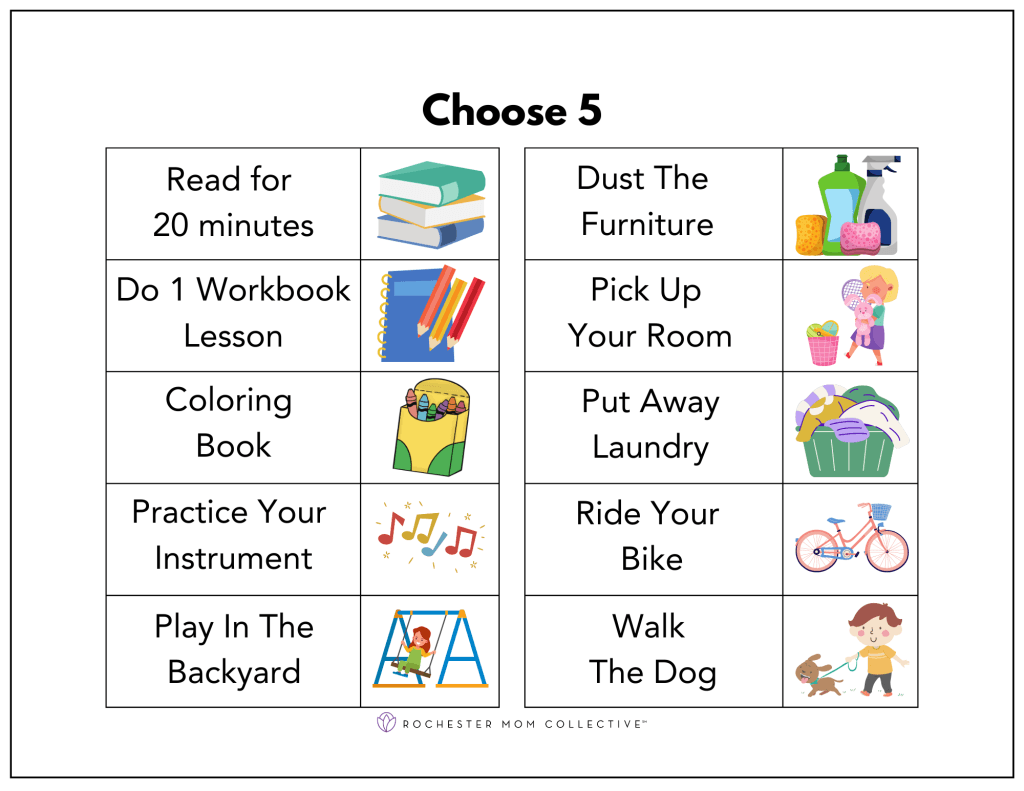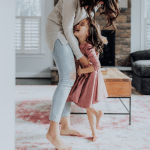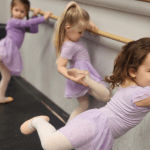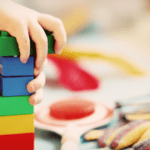
A schedule for the summer? That sounds like a drag. Summertime is typically viewed as a time for fun and relaxation. Why would we need a schedule for that?
As a xennial, my childhood summers were spent essentially MIA from my parents whose only instructions were to stay out of trouble and to be home by the time the street lights came on in the evening. I spent my days swimming at a friend’s house, riding bikes around the neighborhood, playing at different playgrounds, etc. My buddies and I could always come up with something to do. When I think about it now, I almost laugh in disbelief. That simply would not work in my house at present.
Three of my four children struggle with executive function. Executive function refers to a set of skills that manage the capacity to do things like plan ahead and meet goals, display self-control, follow multiple-step directions, and stay focused. Executive dysfunction can be a diagnosis in itself but it is also a symptom of many other disabilities such as Attention-Deficit Hyperactivity Disorder (ADHD), Depression, Obsessive-Compulsive Disorder (OCD), Epilepsy, and Autism Spectrum Disorder (ASD). Since executive dysfunction is a symptom that happens with conditions that disrupt a brain’s ability to control thoughts, emotions, and behavior, my three youngest kids struggle to independently think of ways to entertain themselves.
Even if they were to walk into a room filled with every toy imaginable and told to play with anything they want, they would not know what to do. They might freeze and do nothing or ignore everything in the room and just look out the window or start to play with something in an inappropriate way such as rolling a toy car up and down the side of their face. My children are smart and capable but executive dysfunction causes them to ‘stall out’. They don’t know what or how to start something, it becomes frustrating, and then that results in negative behaviors.
Even the idea of just one stretch of twenty-four completely unstructured hours is overwhelming, let alone the vacation weeks ahead. But I will never be able to replicate the structure and stimulation of public school and, quite frankly, we all deserve a break. If I plan and monitor everything they do every minute of summer break, I’ll go nuts. We do need to maintain some kind of routine but I don’t want to be a parole officer. Surely there has to be some kind of balance. Here’s what works for our family:
- Every day there is a small list with a visual chart of things they MUST do before 9:00 AM or before we leave the house, whichever comes first. (My kids are up at the crack of dawn every day so 9:00 AM is not as outrageous as it may sound to some of you right now.) This list includes basic self care tasks such as “eat breakfast” and “brush teeth” and also crucial tasks like “feed the dogs”.
- There is another much longer list with visual aids of things to do to prevent the “I’m bored!” and “What are we going to do today?” complaints. Before they make any of those kinds of declarations or ask any of those kinds of questions, they must complete five items of that list. The list is comprised only of things I know they can do independently such as “practice your instrument for 20 minutes” or “Take the dogs for a walk” or “Empty the dishwasher”. They aren’t meant to be punishments but tasks that are stimulating and useful, reinforce skills, and are also simple to do. When I hear bickering or whining start, I will ask “Have you done your five things? Do you need to do a sixth?” That stops a lot of quarrels at our house.
- We plan one outing a day. We all get out of the house together for at least a couple hours. Throughout the summer, we hit all the playgrounds and hiking trails in the area. My children need physical activity but struggle with the coordination and motor planning required for a lot of popular team sports. So monkey bars, hiking, riding bikes, and swimming are how we spend a lot of our summer days.
- Each child participates in their own separate activities throughout the summer, as well. Actually, my two youngest are so close in age that they do their activities together, but they don’t mind yet. My older ones have their own extra-curriculars. Besides structure and routine, it gives them each a chance to flex some independence, gives them the time tweens and teens need to develop their interests, and gives all my kids some space from each other. It’s always good to give them a chance to miss each other, even if it’s just for a few hours.
- Find a buddy family and take turns trading kids. When you have a bigger family and you have special needs kids, it’s not easy to find others who “get it”. But when you are able to build a support system of people who understand, use it! Even if you rotate just one child out for just one activity a week, it provides so much help for both families and for the children. It gives kids who may have difficulty cultivating and maintain friendships a chance to spend time at another kids’ house to have fun but also to practice communication with other adults who aren’t teachers or parents.
Every family is different. Every child’s abilities are different. What works for my house may not work for yours and that’s okay. The purpose here is to inspire. If you find your summer days too chaotic for you and your children to enjoy, maybe a flexible schedule like this can help your family, too. It doesn’t have to be a major alteration overnight. Implementing small changes can create a simple routine that’s helpful and easy to follow. It’s not just about balance for the kids. Find a balance for yourself as a parent to be able to enjoy the summer days, as well.
To help, we are providing a FREE printable for you to download and put together at home. Download by clicking the link below.
















